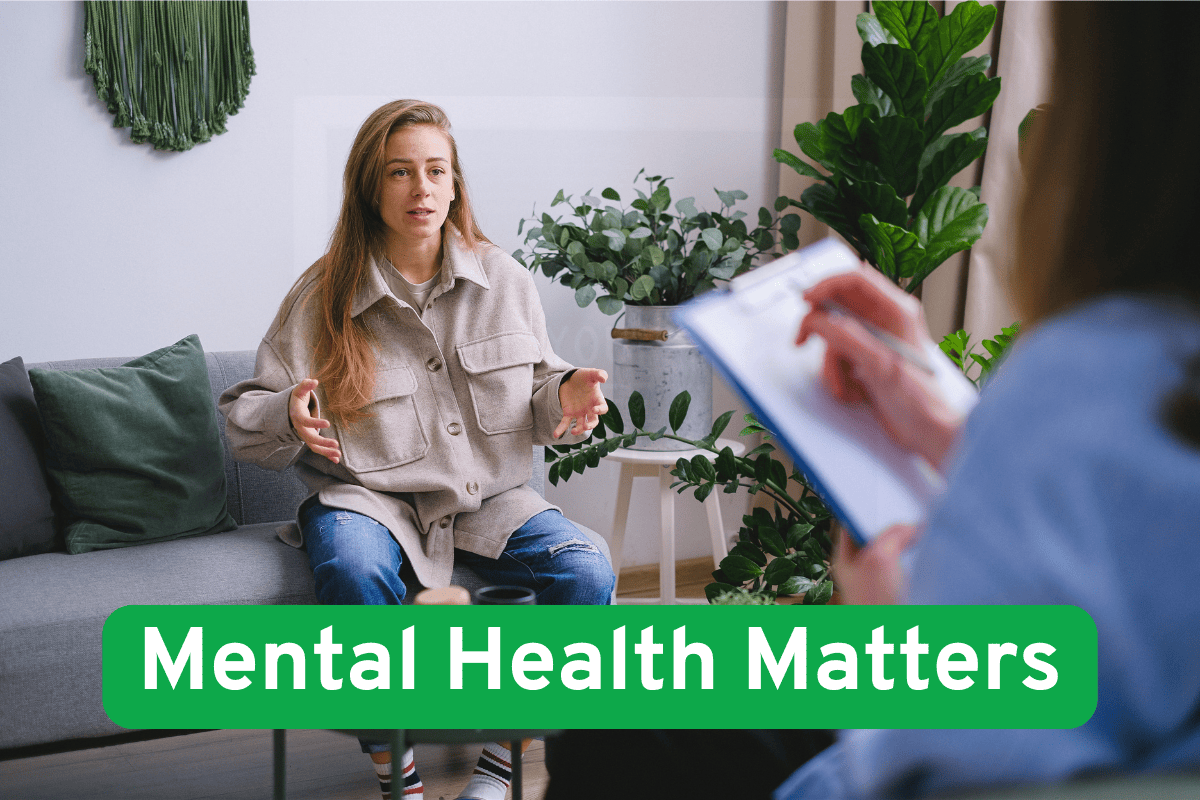
The Benefits of Regular Health Checkups: Why They’re Essential
May 10, 2025
Mental health is crucial to our overall well-being and influences how we think, feel, and act. It impacts every aspect of our lives, including our relationships, work, and physical health. Taking care of mental health through practices like mindfulness, yoga, therapy, proper sleep, and good nutrition can help reduce stress, improve mood, and boost resilience. Prioritizing mental health is essential for leading a balanced and fulfilling life, and it’s important to recognize that seeking help and taking small steps toward better mental health can make a significant difference.
In today’s fast-paced world, mental health has become just as important as physical health. The pressures of work, relationships, and the constant influx of information can leave us feeling overwhelmed. However, simple practices can significantly improve our mental well-being. From mindfulness to proper sleep, integrating these habits into daily life can help reduce stress, improve emotional health, and enhance overall well-being.
Introduction
Mental health is often overlooked, but it is essential for leading a healthy, fulfilling life. In fact, according to the World Health Organization (WHO), mental health disorders affect 1 in 4 people globally. While many individuals may seek professional help when facing significant mental health challenges, there are also preventive measures and practices that can support mental well-being.
Fortunately, you don’t need to make drastic changes to improve your mental health. With just a few simple practices, anyone can begin boosting their mental well-being. In this guide, we’ll explore five straightforward practices backed by science and expert recommendations that can have a profound impact on how we feel, think, and behave.
1. Mindfulness: Being Present in the Moment
Mindfulness involves paying attention to the present moment without judgment. This practice has gained a lot of attention in recent years due to its effectiveness in managing stress, anxiety, and depression. A study published in Psychiatry Research found that practicing mindfulness meditation for just 8 weeks significantly reduced symptoms of anxiety and depression in participants.
Expert Quote:
“Mindfulness helps us move from the automatic mode to a more deliberate, thoughtful approach to life.” – Dr. Jon Kabat-Zinn, founder of Mindfulness-Based Stress Reduction (MBSR).
Incorporating mindfulness into your day could be as simple as taking a few minutes to focus on your breath or using mindfulness apps that guide you through short sessions. It can help you become more aware of your thoughts and emotions, leading to better self-regulation and emotional clarity.
2. Yoga: Physical Movement for Mental Clarity
Yoga is not only beneficial for improving flexibility and strength but also plays a vital role in boosting mental health. The combination of controlled movements, breathing exercises, and meditation fosters relaxation and mental focus. Research indicates that regular yoga practice reduces levels of cortisol, the stress hormone, and improves symptoms of anxiety and depression.
Statistical Insight:
A study published in the Journal of Psychiatric Practice found that participants who practiced yoga for 12 weeks reported a 40% reduction in stress levels and a 50% improvement in mood.
Whether it’s a short morning stretch or a full yoga session, adding this practice to your routine can provide both physical and mental relief, helping to reset your mind for a productive day.
3. Therapy: Speaking Up for Emotional Health
Speaking with a professional, such as a therapist or counselor, is one of the most effective ways to address mental health concerns. Therapy provides a safe space to talk about your thoughts and emotions, offering insight and coping strategies to handle life’s challenges. Cognitive Behavioral Therapy (CBT), for example, has been shown to be highly effective in treating anxiety, depression, and PTSD.
Expert Quote:
“Therapy is not just for those in crisis; it’s a proactive way to prevent mental health issues from escalating.” – Dr. Susan David, Harvard Medical School psychologist.
Even if you’re not experiencing a mental health crisis, therapy can help you manage stress, increase self-awareness, and gain valuable tools for dealing with life’s challenges.
“Take care of your body. It’s the only place you have to live.” – Jim Rohn
4. Proper Sleep: Rest for the Mind and Body
It’s no secret that sleep is essential for physical health, but it is also crucial for mental well-being. Studies consistently show that sleep deprivation can contribute to irritability, heightened anxiety, and even depression. The National Sleep Foundation recommends that adults get 7-9 hours of quality sleep each night to maintain good mental health.
Statistical Insight:
According to the American Psychological Association, people who get sufficient sleep are 30% more likely to report feeling good about their mental health.
Creating a healthy sleep environment—such as keeping your room dark, cool, and quiet—can help promote restful sleep. Moreover, establishing a bedtime routine and reducing screen time before bed can improve the quality of your sleep, which directly benefits your mood and mental clarity.

5. Physical Activity: Exercise for a Healthy Mind
Exercise is one of the most effective ways to improve both physical and mental health. Engaging in regular physical activity, whether it’s a brisk walk, a jog, or a workout session, releases endorphins, the body’s natural mood boosters. Exercise has been proven to reduce stress, anxiety, and depressive symptoms, while also improving sleep quality and cognitive function.
Expert Quote:
“Exercise is a powerful antidote to stress, anxiety, and depression.” – Dr. Michael Otto, Professor of Psychology, Boston University.
The beauty of exercise is that it doesn’t require a gym membership or complicated routines. A simple 30-minute walk every day can go a long way in improving your mental health.
Conclusion
Mental health is something we all need to prioritize, and incorporating simple practices into your routine can lead to significant improvements in your overall well-being. Whether through mindfulness, yoga, therapy, proper sleep, or exercise, there are practical steps we can take to manage stress, prevent burnout, and improve our mental health.
By making small adjustments to your lifestyle, you can start to feel more grounded, focused, and at peace with yourself. Remember, mental health is just as important as physical health, and taking care of your mind is an essential part of living a fulfilling life.


